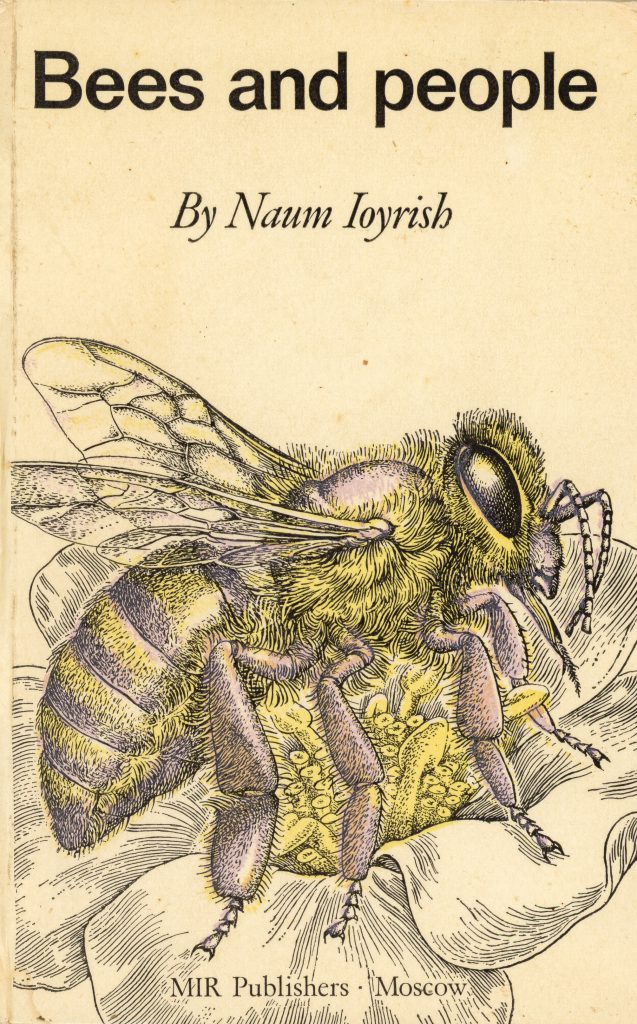First published: 1974.
Library copy published: 1974.

“The life of a bee colony is extremely interesting, and the behaviour of honey bees and the variety of their work arise amazement and make people think that bees have feelings peculiar to human beings, joy, sorrow, love, a sense of self-sacrifice, and so forth; but this idea is incorrect since thought and labour, i. e. rational activity, are peculiar to man alone. As Karl Marx wrote, the bee, in building its wax cells, put some human architects to shame; but what differentiates the worst architect from the best bee, is that before building his wax cell, the architect already has an idea in his head of what he is going to make.” p. 38
“Many rulers and law-givers of the past are reputed to have drawn inspiration from bees. Lycurgus, the founder of Sparta (circa 880 B.C.), is said to have been so impressed on observing a the bees of a bee colony and amazed by the order and organization that reigned there that he took it as his model when he thought to bless his people with a perfect system of government.” p. 188